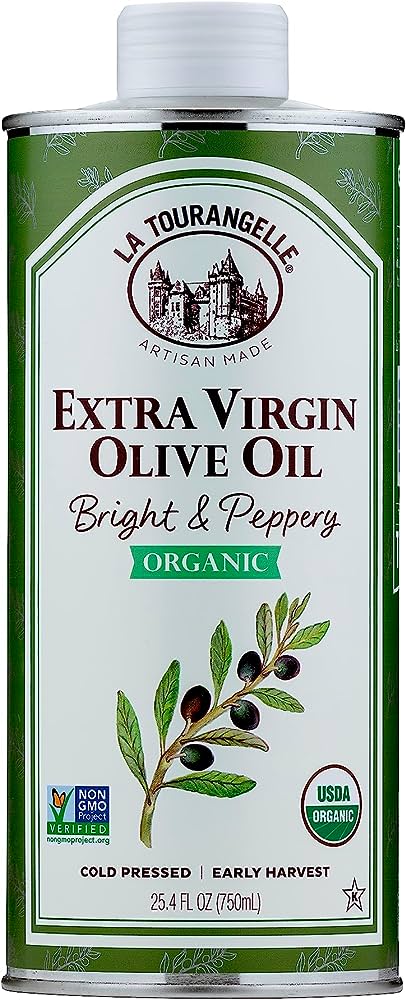Introduction
The Mediterranean diet, often hailed as one of the healthiest dietary patterns in the world, is renowned for its emphasis on fresh, wholesome ingredients and a wealth of heart-healthy fats. Originating in the countries bordering the Mediterranean Sea, this diet has garnered global attention for its potential to promote overall well-being and reduce the risk of heart disease. In this article, we explore the Mediterranean diet’s love affair with heart-healthy fats and how it can benefit your health.
The Mediterranean diet, often hailed as one of the healthiest dietary patterns in the world, is renowned for its emphasis on fresh, wholesome ingredients and a wealth of heart-healthy fats. Originating in the countries bordering the Mediterranean Sea, this diet has garnered global attention for its potential to promote overall well-being and reduce the risk of heart disease.
At its core, the Mediterranean diet is a celebration of nature’s bounty. It encourages the consumption of an abundance of fresh fruits and vegetables, whole grains, legumes, and nuts. This colorful array of foods provides essential vitamins, minerals, and antioxidants that support various aspects of health.
However, one of the standout features of the Mediterranean diet is its embrace of heart-healthy fats. Olive oil, often referred to as “liquid gold,” takes center stage. Rich in monounsaturated fats, it not only enhances the flavor of dishes but also delivers a potent dose of antioxidants and anti-inflammatory compounds. These components play a vital role in reducing the risk of heart disease, as they help maintain healthy blood vessels and lower harmful LDL cholesterol levels.
Another source of heart-healthy fats in this diet is fatty fish like salmon and sardines. These fish are rich in omega-3 fatty acids, which have been extensively studied for their cardiovascular benefits. Omega-3s help reduce blood clot formation, lower blood pressure, and decrease triglyceride levels, all of which contribute to a healthier heart.
Nuts, such as almonds and walnuts, are yet another treasure trove of good fats within the Mediterranean diet. Packed with monounsaturated fats, fiber, and various nutrients, they are associated with improved cholesterol profiles and reduced inflammation.
Moreover, the Mediterranean diet encourages moderate consumption of dairy products, particularly in the form of yogurt and cheese, which provide an additional source of heart-healthy fats and valuable nutrients like calcium and probiotics.
The beauty of the Mediterranean diet lies not just in its individual components but also in how they interact synergistically. The combination of these heart-healthy fats with a medley of fresh vegetables, whole grains, and lean proteins creates a harmonious dietary pattern that supports cardiovascular health, reduces the risk of chronic diseases, and promotes longevity.
In this article, we explore the Mediterranean diet’s love affair with heart-healthy fats and how it can benefit your health. From the golden elixir of olive oil to the ocean’s bounty of fatty fish, this dietary pattern demonstrates that eating for heart health can be a delicious and satisfying journey towards overall well-being. So, let’s delve into the Mediterranean diet’s culinary wonders and discover the secrets to a heart-healthy, flavorful life.
You can also read more about this here: Defining a Healthy Diet: Evidence for the Role of Contemporary …
prioritize natural, unprocessed foods, and enjoy them in the company of friends and family. This diet is characterized by a bountiful array of fruits, vegetables, whole grains, legumes, nuts, seeds, and, of course, healthy fats.
Prioritize natural, unprocessed foods, and enjoy them in the company of friends and family. This diet is not just a prescription for a healthier body but a recipe for a richer and more fulfilling life. It’s a culinary journey that celebrates the vibrancy of whole foods and the warmth of shared meals.
In this approach to eating, the plate becomes a canvas for a rainbow of colors and a symphony of flavors. Fruits burst with the sweetness of nature, vegetables offer a medley of textures and tastes, and whole grains provide a solid foundation of sustenance. Legumes, in all their variety, infuse meals with a hearty, protein-packed punch, while nuts and seeds add delightful crunch and a dose of healthy fats that nurture both body and mind.
But it’s not just about the ingredients; it’s about the experience. Sharing these nourishing dishes with loved ones creates bonds that are as strong as the flavors on your plate. Conversations flow as freely as the wine, and laughter spices up the air. The act of cooking together or breaking bread as a family becomes a ritual of togetherness, fostering connection and strengthening relationships.
Moreover, this diet is a tribute to the wisdom of our ancestors who, for generations, savored the simple pleasures of nature’s bounty. It’s a return to the basics, a rejection of the artificial and overly processed, and an embrace of the real and the wholesome. In a world that often seems rushed and disconnected, this way of eating encourages mindfulness, both in the selection of ingredients and in the act of savoring each bite.
So, as you prioritize natural, unprocessed foods and relish them in the company of friends and family, remember that you’re not just nourishing your body but also feeding your soul. It’s a path to better health, deeper connections, and a more joyous and meaningful life.
Explore this link for a more extensive examination of the topic: Unhappy Meals – Michael Pollan – The New York Times

Healthy fats are a cornerstone of the Mediterranean diet, contributing not only to its delicious flavors but also to its renowned health benefits. Here are some key sources of heart-healthy fats commonly found in this diet:
nullYou can also read more about this here: How the Ideology of Low Fat Conquered America | Journal of the …

Considered liquid gold, extra virgin olive oil is a primary source of healthy monounsaturated fats in the Mediterranean diet. It is rich in antioxidants and anti-inflammatory properties, which may help reduce the risk of chronic diseases, including heart disease.
Considered liquid gold, extra virgin olive oil is a primary source of healthy monounsaturated fats in the Mediterranean diet. This precious oil has garnered immense attention for its remarkable health benefits and culinary versatility. It is not just a flavorful addition to your dishes; it’s a powerhouse of nutrients that can transform your overall well-being.
One of the standout features of extra virgin olive oil is its high monounsaturated fat content. These fats are considered heart-healthy because they can help lower LDL (bad) cholesterol levels while preserving HDL (good) cholesterol. This favorable lipid profile is a crucial component of cardiovascular health, reducing the risk of heart disease, a prevalent concern worldwide.
Furthermore, extra virgin olive oil is a rich source of antioxidants, particularly vitamin E and various polyphenols. These antioxidants are instrumental in combating oxidative stress, which is a driving force behind chronic diseases and the aging process. By reducing the damage caused by free radicals, extra virgin olive oil contributes to overall health and longevity.
The anti-inflammatory properties of this liquid gold are equally noteworthy. Chronic inflammation is at the core of many diseases, from arthritis to cancer. The compounds in extra virgin olive oil have been shown to modulate inflammatory processes in the body, potentially lowering the risk of developing these conditions.
Incorporating extra virgin olive oil into your diet isn’t just about reaping health benefits; it’s also a delightful culinary experience. Its rich, fruity flavor and aromatic nuances can enhance a wide array of dishes, from salads to pasta to grilled vegetables. Substituting saturated and trans fats with this Mediterranean gem can be a simple yet impactful dietary change that promotes not only heart health but also overall vitality.
To make the most of extra virgin olive oil’s health advantages, ensure you choose high-quality, authentic products. Look for certifications like “Extra Virgin” and “Cold-Pressed” on the label to ensure purity and quality. It’s an investment in your health and culinary pleasure that can pay dividends in the form of reduced disease risk and enhanced well-being.
Should you desire more in-depth information, it’s available for your perusal on this page: The Mediterranean Diet for Lifelong Wellness: delicious flavors …

Fish such as salmon, mackerel, sardines, and trout are staples in Mediterranean cuisine. They are abundant sources of omega-3 fatty acids, which have been shown to lower triglycerides, reduce blood pressure, and decrease inflammation.
Fish, particularly varieties like salmon, mackerel, sardines, and trout, take center stage in Mediterranean cuisine for more reasons than their delectable flavors. These culinary treasures are abundant sources of omega-3 fatty acids, which have earned their reputation as potent guardians of cardiovascular health.
Omega-3 Fatty Acids: The Heart’s Best Friend: Omega-3 fatty acids, especially eicosapentaenoic acid (EPA) and docosahexaenoic acid (DHA), found in fatty fish, exhibit an impressive range of cardiovascular benefits. Here’s how they contribute to heart health:
Lower Triglycerides: Omega-3s have the remarkable ability to lower triglyceride levels in the bloodstream, reducing the risk of hypertriglyceridemia, a condition linked to heart disease.
Blood Pressure Regulation: Consuming omega-3-rich fish can help regulate blood pressure, making it an excellent dietary choice for individuals with hypertension.
Inflammation Reduction: Omega-3s have powerful anti-inflammatory properties that can help combat chronic inflammation, a common factor in the development of heart disease.
Arrhythmia Prevention: These fatty acids may reduce the risk of arrhythmias (irregular heart rhythms), enhancing heart rhythm stability.
Improved Cholesterol Profile: Omega-3s can raise high-density lipoprotein (HDL) cholesterol, often referred to as “good” cholesterol, which helps remove low-density lipoprotein (LDL) cholesterol from the bloodstream.
Balancing the Mediterranean Diet: Fatty fish plays a pivotal role in ensuring that the Mediterranean diet is not only delicious but also optimally heart-healthy. In Mediterranean countries, these fish are often grilled, baked, or simply marinated in olive oil and herbs, highlighting their natural flavors.
The Omega-3 Powerhouse Trio: While salmon, mackerel, sardines, and trout are standout sources of omega-3s, it’s worth mentioning the omega-3 power trio. Alongside these fish, flaxseeds, chia seeds, and walnuts are plant-based sources of alpha-linolenic acid (ALA), a different type of omega-3. While ALA offers health benefits, it’s essential to recognize that EPA and DHA, found in fatty fish, have more potent cardiovascular effects.
A Dietary Habit Worth Embracing: Incorporating omega-3-rich fish into your diet is a delicious and heart-smart choice. Aim to enjoy these fish at least twice a week to reap the full spectrum of their cardiovascular benefits. Whether you savor a grilled salmon fillet, indulge in a mackerel salad, or relish sardines on whole-grain toast, you’re not only treating your taste buds but also nurturing your heart—a win-win for your culinary repertoire and your well-being.
If you’d like to dive deeper into this subject, there’s more to discover on this page: What is the Nordic diet — and why do doctors, dietitians and even …

Almonds, walnuts, pistachios, and flaxseeds are frequently enjoyed in this diet. They provide a hearty dose of unsaturated fats, fiber, and various vitamins and minerals.
Almonds, walnuts, pistachios, and flaxseeds are not only delicious but also highly nutritious additions to your diet. These nuts and seeds have earned a well-deserved reputation as nutritional powerhouses due to their impressive array of health benefits.
First and foremost, they are rich sources of unsaturated fats, particularly heart-healthy monounsaturated and polyunsaturated fats. These fats have been associated with reduced risk factors for cardiovascular disease, including improved cholesterol profiles and lower blood pressure. Incorporating these nuts and seeds into your diet can be a smart choice for maintaining a healthy heart.
Additionally, nuts and seeds are excellent sources of dietary fiber. Fiber plays a crucial role in promoting digestive health by preventing constipation and supporting regular bowel movements. Beyond its digestive benefits, dietary fiber also helps in controlling appetite, as it provides a feeling of fullness that can help curb overeating and support weight management goals.
Moreover, these nuts and seeds are packed with a wide range of essential vitamins and minerals. For instance, almonds are rich in vitamin E, an antioxidant that helps protect cells from oxidative damage. Walnuts are known for their high omega-3 fatty acid content, which is beneficial for brain health and inflammation reduction. Pistachios provide a good dose of vitamin B6, which is important for various metabolic functions. Flaxseeds are renowned for their omega-3 fatty acids and are also an excellent source of plant-based protein, making them a valuable addition to vegetarian and vegan diets.
Incorporating almonds, walnuts, pistachios, and flaxseeds into your daily routine can be as simple as adding them to your morning yogurt, sprinkling them on salads, or using them as ingredients in smoothies and baked goods. Their versatility makes it easy to enjoy their nutritional benefits in various ways.
In conclusion, these nuts and seeds offer a multitude of health advantages, from supporting heart health to aiding digestion and supplying essential nutrients. Making them a regular part of your diet can contribute to a well-rounded and nutritious eating plan that promotes overall well-being.
To expand your knowledge on this subject, make sure to read on at this location: Exploring Different Types of Diets: A Comprehensive Guide to …

Rich, creamy, and satisfying, avocados are another source of monounsaturated fats. They’re versatile and add a delightful touch to salads, sandwiches, and spreads.
nullTo expand your knowledge on this subject, make sure to read on at this location: What goes into a Mediterranean diet, and how to get started …

Olives and olive products are ubiquitous in Mediterranean dishes, supplying an additional dose of monounsaturated fats and antioxidants.
Olives and the various products derived from them play a starring role in Mediterranean cuisine, and their presence goes far beyond their delicious taste. They bring a wealth of nutritional benefits to the table, enriching the region’s traditional dishes in more ways than one.
One of the standout qualities of olives is their rich monounsaturated fat content, specifically oleic acid. This type of fat has earned a stellar reputation for its heart-healthy properties. Monounsaturated fats are known to help lower levels of LDL cholesterol, the type associated with an increased risk of heart disease. By incorporating olives or olive oil into your diet, you not only infuse your meals with a distinctive Mediterranean flavor but also contribute to the well-being of your heart.
Moreover, olives are a powerhouse of antioxidants, particularly vitamin E and various polyphenols. These antioxidants combat harmful free radicals in your body, which can contribute to chronic diseases and premature aging. The Mediterranean diet, with its abundant olives and olive oil, is often credited with promoting longevity and reducing the risk of conditions like heart disease and certain cancers.
Beyond their nutritional benefits, olives also add depth and complexity to dishes. Their briny and slightly bitter notes can enhance salads, pasta, pizzas, and even cocktails. From the bold Kalamata olives to the delicate Castelvetrano variety, each type offers a unique flavor profile that can elevate your culinary creations.
It’s worth noting that while olives are a nutritious addition to your diet, they can be high in sodium due to the curing or brining process. Therefore, if you’re watching your sodium intake, it’s advisable to consume them in moderation or opt for low-sodium varieties.
In summary, olives and olive products are much more than a flavorful ingredient in Mediterranean cuisine; they’re a cornerstone of its renowned health benefits. The infusion of monounsaturated fats and antioxidants not only tantalizes your taste buds but also nurtures your well-being. Embracing the Mediterranean tradition of incorporating olives into your meals can be a savory and healthful step toward a more vibrant and heart-healthy lifestyle.
For additional details, consider exploring the related content available here The Fantastic Fats of the Mediterranean Diet: Not Quite Keto | Oldways

The Mediterranean diet is celebrated for its potential to improve heart health and reduce the risk factors associated with cardiovascular disease. Here’s how embracing heart-healthy fats in this diet can benefit your health:
The Mediterranean diet is celebrated for its potential to improve heart health and reduce the risk factors associated with cardiovascular disease. Here’s how embracing heart-healthy fats in this diet can benefit your health and contribute to a long, vibrant life:
Olive Oil’s Elixir: At the heart of the Mediterranean diet is olive oil, a treasure trove of monounsaturated fats and antioxidants. Regular consumption of olive oil has been linked to lower levels of LDL (bad) cholesterol, reduced inflammation, and improved blood vessel function. These factors collectively help reduce the risk of atherosclerosis, a condition that can lead to heart attacks and strokes.
Nuts for Heart Health: The Mediterranean diet encourages the consumption of nuts like almonds, walnuts, and pistachios, which are packed with heart-boosting monounsaturated fats, fiber, and essential nutrients. These nuts have been associated with reduced cholesterol levels, improved blood sugar control, and enhanced blood vessel health, all of which promote cardiovascular well-being.
Fatty Fish Fortification: Fatty fish such as salmon, mackerel, and sardines are staples in the Mediterranean diet. These fish are rich in omega-3 fatty acids, which have remarkable benefits for the heart. Omega-3s can lower triglycerides, reduce blood pressure, and prevent irregular heartbeats. Regular consumption of fatty fish is linked to a decreased risk of heart disease.
Plant-Based Proteins: The Mediterranean diet emphasizes plant-based proteins like beans, lentils, and tofu as alternatives to red meat. These protein sources are low in saturated fats and high in fiber, which can help control cholesterol levels and reduce the risk of heart disease.
Avocado Abundance: Avocado, another star of the Mediterranean diet, is loaded with monounsaturated fats and potassium. These fats can help reduce LDL cholesterol levels, while potassium supports healthy blood pressure regulation. Avocado’s creamy texture also makes it an excellent substitute for butter or mayonnaise in recipes.
Whole Grain Goodness: Whole grains like quinoa, brown rice, and whole wheat pasta provide complex carbohydrates and fiber that can help manage weight and lower the risk of heart disease. They stabilize blood sugar levels and keep you feeling full, reducing the temptation to overeat.
Red Wine in Moderation: The Mediterranean diet suggests enjoying red wine in moderation, primarily during meals. The antioxidants in red wine, such as resveratrol, may help protect the lining of blood vessels and reduce inflammation, contributing to overall heart health.
Fruits and Veggies: The diet places a strong emphasis on fresh fruits and vegetables, which are rich in vitamins, minerals, fiber, and antioxidants. These nutrients collectively support heart health by reducing oxidative stress, inflammation, and blood pressure.
By embracing the heart-healthy fats and nutrient-rich foods of the Mediterranean diet, you not only promote cardiovascular health but also enjoy a delicious and diverse range of flavors. This lifestyle choice can lead to a longer, more vibrant life, all while savoring the culinary delights of the Mediterranean region.
To delve further into this matter, we encourage you to check out the additional resources provided here: BLOG | Happea’s

The monounsaturated fats in olive oil and omega-3 fatty acids in fatty fish are known to reduce the risk of heart disease by improving cholesterol levels, reducing inflammation, and promoting healthy blood vessels.
The health benefits of incorporating monounsaturated fats from olive oil and omega-3 fatty acids from fatty fish into your diet extend far beyond just reducing the risk of heart disease. These nutritional powerhouses play a pivotal role in promoting overall cardiovascular health and well-being.
Monounsaturated fats found in olive oil are heart-healthy fats that can positively impact your cholesterol profile. They not only help lower “bad” LDL cholesterol levels but also maintain or even increase “good” HDL cholesterol levels, which are crucial for heart health. Additionally, these fats have anti-inflammatory properties, reducing the overall inflammation in your body, a key contributor to various chronic diseases, including heart disease. Moreover, the monounsaturated fats in olive oil contribute to the maintenance of healthy blood vessels, ensuring they remain flexible and efficient in delivering oxygen and nutrients throughout your body.
Omega-3 fatty acids, prevalent in fatty fish like salmon, mackerel, and sardines, are renowned for their heart-protective qualities. They have the ability to reduce triglycerides in the bloodstream, lower blood pressure, and prevent irregular heart rhythms, all of which are associated with a reduced risk of heart disease. Furthermore, omega-3s are known for their anti-inflammatory effects, which can help prevent the development of atherosclerosis, a condition characterized by the buildup of plaque in the arteries.
Incorporating olive oil and fatty fish into your diet is not just about lowering the risk of heart disease; it’s about nurturing your heart’s well-being. By embracing these heart-healthy fats, you’re not only promoting better cholesterol levels, reducing inflammation, and supporting healthy blood vessels, but you’re also making a significant investment in your long-term cardiovascular health. So, make these dietary choices with confidence, knowing that they are an essential part of a heart-protective lifestyle.
Additionally, you can find further information on this topic by visiting this page: Is the Mediterranean Diet Heart-Healthy? | Bon Secours Blog

The Mediterranean diet’s emphasis on wholesome, filling foods and portion control can assist with weight management, a crucial aspect of heart health.
nullYou can also read more about this here: Diet & Weight Loss – Harvard Health

This diet has shown promise in helping manage blood sugar levels and reducing the risk of type 2 diabetes.
This dietary approach presents a ray of hope in the realm of health and wellness by demonstrating its potential to effectively regulate blood sugar levels and, in turn, mitigate the risk of developing type 2 diabetes. Here’s a deeper exploration of how this diet can make a significant impact:
Blood Sugar Mastery: The primary focus of this diet is the control of blood sugar. By emphasizing low-glycemic foods, complex carbohydrates, and balanced meals, it provides a framework for stabilizing blood sugar levels. This is particularly crucial for individuals with prediabetes or those at risk of developing type 2 diabetes.
Weight Management: A core principle of this dietary approach is the promotion of a healthy weight. Carrying excess weight, especially around the waist, is a known risk factor for insulin resistance and type 2 diabetes. By encouraging weight loss or maintenance, this diet addresses a key component of diabetes prevention.
Balanced Macronutrients: This diet prioritizes the consumption of a balanced ratio of macronutrients, including carbohydrates, proteins, and fats. By doing so, it helps prevent the rapid spikes in blood sugar often associated with high-carb meals, contributing to better glycemic control.
Fiber and Whole Grains: Whole grains and fiber-rich foods are staples of this dietary approach. They not only provide a steady release of energy but also improve insulin sensitivity. Fiber helps slow the digestion of carbohydrates, preventing sharp rises in blood sugar levels.
Healthy Fats: Healthy fats, such as those found in nuts, seeds, and fatty fish, are encouraged. These fats can help improve insulin sensitivity and reduce inflammation, which are essential components in preventing type 2 diabetes.
Antioxidant-Rich Foods: Many foods recommended in this diet are rich in antioxidants, which combat oxidative stress and inflammation. Reducing these factors can contribute to improved insulin function and a decreased risk of developing diabetes.
Customized Approach: One of the strengths of this dietary plan is its flexibility. It can be tailored to an individual’s specific needs and preferences, making it more likely that people will stick with it in the long term.
Sustainable Lifestyle: Unlike extreme or restrictive diets, this approach is sustainable. It promotes lifelong changes in eating habits rather than quick fixes, ensuring that the benefits of improved blood sugar management are maintained over time.
In conclusion, this diet represents a promising path to not only managing blood sugar levels but also reducing the risk of type 2 diabetes. Its holistic approach encompasses various aspects of nutrition, weight management, and lifestyle changes, making it a valuable tool for those seeking to safeguard their health and well-being. By embracing this dietary strategy, individuals can take proactive steps towards a healthier, diabetes-resistant future.
Looking for more insights? You’ll find them right here in our extended coverage: Exploring Different Types of Diets: A Comprehensive Guide to …

Studies suggest that adhering to the Mediterranean diet is associated with a longer lifespan and a reduced risk of chronic diseases, including Alzheimer’s disease.
Studies consistently point to the Mediterranean diet as a nutritional pattern that not only tantalizes the taste buds but also offers the promise of a longer and healthier life. This dietary regimen, inspired by the traditional eating habits of countries bordering the Mediterranean Sea, is celebrated for its multifaceted benefits, among which stands the remarkable potential to extend our lifespan and shield us from a myriad of chronic diseases, most notably, Alzheimer’s disease.
At the heart of the Mediterranean diet lies a treasure trove of nutrient-rich foods. It’s a symphony of colorful vegetables, luscious fruits, whole grains, heart-healthy fats from sources like olive oil and nuts, and a moderate intake of lean proteins, primarily fish and poultry. The diet is also characterized by its limited consumption of red meat and sweets, which contributes to its overall healthfulness.
One of the standout attributes of the Mediterranean diet is its ability to promote longevity. Research spanning decades has consistently linked adherence to this dietary pattern with a reduced risk of mortality. The magic seems to lie in its anti-inflammatory and antioxidant-rich components. The abundance of fruits and vegetables supplies essential vitamins and antioxidants that combat free radicals, slowing down the aging process at the cellular level.
Moreover, the healthy fats, particularly the monounsaturated fats found in olive oil, offer a protective shield for the heart and brain. These fats contribute to reduced inflammation and improved cholesterol levels, both of which play a pivotal role in cardiovascular health. But perhaps even more exciting is the emerging evidence that these fats might be key players in preserving cognitive function, thus reducing the risk of neurodegenerative diseases like Alzheimer’s.
Intriguingly, research has shown that the Mediterranean diet may be a formidable defense against Alzheimer’s disease. The very components that support heart health—such as those healthy fats, antioxidants, and anti-inflammatory compounds—also appear to nourish the brain. Studies suggest that adhering to this diet may reduce the risk of cognitive decline, enhance memory, and lower the likelihood of developing Alzheimer’s or related dementias.
The exact mechanisms by which the Mediterranean diet exerts its protective influence on the brain are still under investigation, but the evidence thus far is compelling. It underscores the idea that what’s good for the heart is often good for the brain, and this diet serves as a shining example of that principle in action.
In conclusion, the Mediterranean diet isn’t just a delightful culinary journey through the sun-soaked lands of southern Europe; it’s a blueprint for a longer, healthier life. Its diverse array of nutrient-rich foods, coupled with its potential to reduce the risk of chronic diseases, including Alzheimer’s, makes it a dietary treasure trove worth exploring for those seeking to enhance their well-being and increase their chances of living a vibrant, disease-free life.
Looking for more insights? You’ll find them right here in our extended coverage: BLOG | Happea’s

To adopt the Mediterranean diet and embrace heart-healthy fats, consider the following:
To embark on the journey of adopting the Mediterranean diet and welcoming heart-healthy fats into your life, it’s essential to take a thoughtful and deliberate approach. Here are some key considerations to guide you on this path to better health and well-being:
Incorporate Abundant Plant-Based Foods: At the core of the Mediterranean diet are plant-based foods like fruits, vegetables, legumes, and whole grains. These nutrient-rich options form the foundation of your meals, providing essential vitamins, minerals, and dietary fiber that support overall health.
Prioritize Healthy Fats: Embrace the beauty of heart-healthy fats, such as olive oil, nuts, and seeds. These fats not only add a delightful depth of flavor to your dishes but also offer protective benefits for your heart. Substituting saturated and trans fats with these healthier alternatives can make a significant difference in your well-being.
Include Fatty Fish: Incorporate fatty fish like salmon, mackerel, and sardines into your diet. These fish are rich in omega-3 fatty acids, which have anti-inflammatory properties and are known to reduce the risk of heart disease. Aim to enjoy them at least twice a week.
Limit Red Meat: While the Mediterranean diet allows for occasional consumption of lean cuts of red meat, it’s advisable to keep such intake in moderation. Instead, explore other protein sources like poultry, beans, and legumes.
Enjoy Dairy in Moderation: Choose dairy products like Greek yogurt and cheese in moderation. Opt for low-fat or fat-free options when possible.
Season with Herbs and Spices: Embrace the rich flavors of the Mediterranean by using herbs and spices instead of salt to season your meals. This not only enhances taste but also contributes to the diet’s heart-healthy attributes.
Stay Hydrated with Water: Make water your primary beverage choice. It’s a simple yet effective way to maintain proper hydration and support overall health.
Moderate Alcohol Consumption: If you consume alcohol, do so in moderation. Red wine, when consumed in limited quantities and with meals, has been associated with heart health in some studies. However, it’s essential to be mindful of your alcohol intake and not exceed recommended limits.
Embrace the Social Aspect: The Mediterranean diet is more than just a collection of foods; it’s a way of life. Embrace the social and cultural aspects by sharing meals with loved ones, savoring each bite, and enjoying the pleasure of good company.
Consult with a Healthcare Professional: Before making significant changes to your diet, especially if you have any underlying health conditions, it’s advisable to consult with a healthcare professional or a registered dietitian. They can provide personalized guidance tailored to your specific needs and goals.
By embracing these principles and making gradual, sustainable changes to your eating habits, you can embark on a fulfilling journey towards adopting the Mediterranean diet and nurturing both your heart and overall well-being.
You can also read more about this here: Aara Health on Instagram: “Embracing the Longevity Diet …

Replace saturated fats like butter with extra virgin olive oil for cooking and salad dressings.
nullTo delve further into this matter, we encourage you to check out the additional resources provided here: Mediterranean Diet & DASH Diet Could Be Beneficial After A Heart …

Aim to include fatty fish in your meals at least twice a week.
Aiming to incorporate fatty fish into your weekly meal plan, ideally at least twice a week, is a smart dietary choice with numerous health benefits. Here’s why this practice can be a valuable addition to your eating habits:
Omega-3 Richness: Fatty fish like salmon, mackerel, and trout are renowned for their high omega-3 fatty acid content. Omega-3s are essential fats that offer a wide range of health advantages, including reducing inflammation, improving heart health, and supporting cognitive function.
Heart Health: Regular consumption of fatty fish can help lower the risk of heart disease. Omega-3s can reduce triglycerides, lower blood pressure, and prevent the formation of blood clots, contributing to a healthier cardiovascular system.
Brain Boost: Omega-3 fatty acids, particularly DHA (docosahexaenoic acid), are vital for brain health and development. Including fatty fish in your diet can enhance cognitive function, improve memory, and potentially reduce the risk of cognitive decline as you age.
Eye Health: Omega-3s found in fatty fish are beneficial for eye health, especially in reducing the risk of age-related macular degeneration (AMD) and dry eye syndrome. They contribute to maintaining good vision throughout life.
Inflammation Reduction: Chronic inflammation is linked to many chronic diseases, including arthritis. Omega-3s in fatty fish possess anti-inflammatory properties, which can help alleviate symptoms and improve the quality of life for individuals with inflammatory conditions.
Weight Management: Including fatty fish in your diet can aid in weight management. The high-quality protein in fish can help you feel full and satisfied, potentially reducing overall calorie intake.
Nutrient Density: Fatty fish are rich in essential nutrients like vitamin D, vitamin B12, and minerals such as selenium. These nutrients are vital for various bodily functions, including bone health and immune system support.
Delicious and Versatile: Fatty fish are not only nutritious but also delicious and versatile in the kitchen. You can grill, bake, poach, or even enjoy them raw in sushi or sashimi, making it easy to incorporate them into a wide range of meals.
Sustainability: Many fatty fish options come from sustainable sources, reducing the environmental impact of your dietary choices. Choosing sustainably sourced seafood contributes to the preservation of marine ecosystems.
In summary, making an effort to include fatty fish in your diet at least twice a week can significantly enhance your overall health and well-being. Whether you savor the taste or value the numerous health benefits, it’s a simple and enjoyable dietary habit that can have a profound and positive impact on your life.
Explore this link for a more extensive examination of the topic: What is The Mediterranean Diet?

Incorporate nuts and seeds as a snack or as toppings for salads and yogurt.
Incorporate nuts and seeds as a snack or as toppings for salads and yogurt to elevate both the flavor and nutritional value of your meals. These tiny powerhouses of nutrition can make a significant difference in your overall health and culinary experience.
As a Snack:
When hunger strikes between meals, nuts and seeds make for an excellent go-to snack. They are not only convenient but also incredibly satisfying. A handful of almonds, walnuts, or cashews can provide a quick energy boost and keep you full for longer due to their protein and healthy fat content. Additionally, the crunchiness and natural richness of nuts make them a flavorful and satisfying option to curb those midday cravings. You can also add a touch of sweetness by mixing them with dried fruits for a delightful trail mix.
As Salad Toppings:
If you’re looking to enhance the texture and taste of your salads, nuts and seeds are your secret weapon. They add a delightful crunch that contrasts beautifully with the crispness of vegetables and greens. Sprinkle some toasted sesame seeds or pumpkin seeds (pepitas) over your salad for an extra layer of flavor and a dose of essential nutrients. Almonds, pecans, or pine nuts can be lightly toasted and sprinkled on top to bring out their natural nuttiness and add a pleasant smokiness to your salads.
As Yogurt Toppings:
Transform your morning yogurt into a gourmet treat by incorporating nuts and seeds. They not only provide a pleasing crunch but also infuse your yogurt with a wealth of nutrients. Chia seeds, for instance, can be mixed in with yogurt to create a delightful pudding-like texture while offering a generous supply of fiber and omega-3 fatty acids. For a Mediterranean twist, try a drizzle of honey and a sprinkle of crushed pistachios over your yogurt. The possibilities are endless, and you can tailor your toppings to your taste preferences.
In addition to their flavor and texture benefits, nuts and seeds are packed with essential nutrients such as vitamins, minerals, antioxidants, and healthy fats. They contribute to heart health, help regulate blood sugar, and support weight management. Moreover, they are a fantastic source of plant-based protein, making them an excellent option for vegetarians and vegans.
So, whether you’re seeking a convenient and nutritious snack or looking to enhance the taste and health benefits of your salads and yogurt, nuts and seeds are versatile additions that can elevate your culinary experience while promoting your overall well-being.
To delve further into this matter, we encourage you to check out the additional resources provided here: Why We Love Nuts — Embrace

Make fruits and vegetables the centerpiece of your meals, and let them shine with a drizzle of olive oil.
Make fruits and vegetables the radiant centerpiece of your meals, allowing their vibrant colors and flavors to take center stage with a generous drizzle of olive oil. This simple yet profound culinary approach is a gateway to a healthier and more delightful way of eating.
1. The Garden of Health: Placing fruits and vegetables at the heart of your plate is like tending to your own personal garden of health. These nutrient-packed foods are bursting with vitamins, minerals, and antioxidants that nourish your body and boost your immune system. The rich palette of colors signifies a diverse range of nutrients, each contributing to your overall well-being.
2. Olive Oil Elixir: Olive oil, often referred to as “liquid gold,” is the perfect companion for your fruits and vegetables. Its healthy monounsaturated fats not only add a luxurious texture but also enhance the absorption of fat-soluble vitamins from your greens. Moreover, olive oil is packed with antioxidants and anti-inflammatory compounds that further amplify the health benefits of your meal.
3. Flavor Explosion: When you drizzle olive oil over your produce, you’re not just adding a healthy fat; you’re unlocking a world of flavors. The oil’s fruity, peppery, or even nutty notes can transform a mundane salad or sautéed vegetables into a culinary masterpiece. It’s the alchemy of simplicity, turning everyday ingredients into extraordinary creations.
4. Satiety and Balance: The healthy fats in olive oil contribute to a sense of satiety, helping to curb your appetite and prevent overeating. This natural balance of nutrients in fruits, vegetables, and olive oil can help stabilize blood sugar levels and provide sustained energy throughout the day.
5. Culinary Versatility: Whether you’re roasting a medley of vegetables, drizzling olive oil over a fresh salad, or using it as a dip for bread, the possibilities are endless. Olive oil’s versatility makes it a chef’s secret weapon, elevating your culinary adventures to new heights.
6. A Mediterranean Love Story: This combination of fruits, vegetables, and olive oil is at the heart of the Mediterranean diet, which has long been associated with longevity and well-being. Embracing this way of eating can transport you to the sun-kissed shores of the Mediterranean, where meals are savored slowly and health is celebrated daily.
In summary, making fruits and vegetables the centerpiece of your meals, adorned with a drizzle of olive oil, is a delicious and healthful choice. It’s a celebration of nature’s bounty and an invitation to savor the simplicity and richness of a diet that nourishes both body and soul. So, let your plate become a canvas of color and flavor, and let the magic of these natural ingredients infuse every meal with vitality and joy.
For additional details, consider exploring the related content available here Is the Mediterranean Diet Heart-Healthy? | Bon Secours Blog

Savor your meals slowly, and prioritize sharing them with loved ones to fully experience the Mediterranean diet’s holistic approach to well-being.
nullLooking for more insights? You’ll find them right here in our extended coverage: The Ultimate Mediterranean Diet Cookbook for Beginners: Enjoy …

Conclusion
The Mediterranean diet’s embrace of heart-healthy fats is not just a culinary choice; it’s a celebration of the profound connection between flavorful, nourishing foods and vibrant health. By adopting this dietary pattern and savoring the goodness of heart-healthy fats, you can embark on a journey towards better cardiovascular health, longevity, and a delicious appreciation for the culinary traditions of the Mediterranean region.
The Mediterranean diet’s embrace of heart-healthy fats is not just a culinary choice; it’s a celebration of the profound connection between flavorful, nourishing foods and vibrant health. This dietary pattern doesn’t view food as mere sustenance; it sees it as a source of well-being, a way to foster a harmonious relationship between our bodies and the bountiful offerings of nature. By adopting this time-tested approach and savoring the goodness of heart-healthy fats, you can embark on a transformative journey towards better cardiovascular health, longevity, and a deep appreciation for the culinary traditions of the Mediterranean region.
At its core, the Mediterranean diet is a mosaic of fresh fruits and vegetables, whole grains, legumes, lean proteins, and, of course, the star of the show, heart-healthy fats such as extra virgin olive oil and nuts. This combination not only tantalizes your taste buds but also nurtures your body from the inside out. It’s a diet rich in diversity, colors, and textures, reflecting the bounty of the Mediterranean landscape.
What sets the Mediterranean diet apart is its holistic approach to health. It recognizes that true well-being is not just about individual nutrients or strict rules but about the sum of your dietary choices and lifestyle. It’s about enjoying meals with loved ones, savoring the sensory pleasures of food, and appreciating the joy of simple, unprocessed ingredients.
By making the Mediterranean diet a way of life, you are nourishing your body with foods that have been linked to reduced risk of heart disease, stroke, diabetes, and even some types of cancer. The monounsaturated fats found in olive oil and the wealth of vitamins, minerals, and antioxidants in fruits, vegetables, and nuts are like a symphony for your cells, promoting their optimal function.
As you delve into the Mediterranean diet, you’ll likely discover new ingredients, flavors, and recipes that inspire your culinary creativity. You’ll find that this dietary pattern is not a rigid set of rules but a flexible template that allows you to adapt to your tastes and preferences while still reaping its health rewards. It’s an invitation to explore the world of Mediterranean cuisine, from Greek tzatziki to Spanish paella to Italian bruschetta, each dish brimming with history, culture, and health benefits.
In essence, the Mediterranean diet isn’t just about what’s on your plate; it’s about the joy of the journey. It’s about celebrating food as a bridge between cultures, a source of vitality, and a lifelong commitment to a healthier, happier you. So, embrace this delicious way of eating, and let it guide you towards a future of improved cardiovascular health, greater longevity, and a genuine love for the flavors of the Mediterranean.
Don’t stop here; you can continue your exploration by following this link for more details: How the Ideology of Low Fat Conquered America | Journal of the …
More links
You can also read more about this here: Is the Mediterranean Diet Heart-Healthy? | Bon Secours Blog
